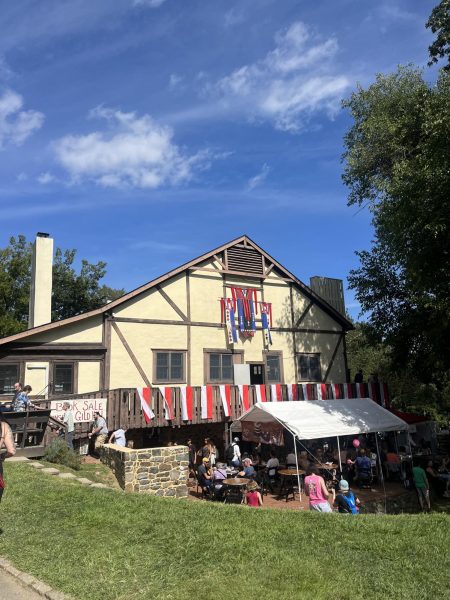The Importance of Black History Month
The Importance of Black History Month
Growing up, I rarely saw people on TV that looked like me. I loved watching Disney Channel, but every family on their TV shows was white and cookie-cutter perfect. I wanted to look like this and be what I considered “perfect.” I wanted to have a nice white family that got into funny situations and at the end of the day, had a happy ending.
Looking back, I know this way of thinking is destructive. Television in no way represents the average American family, but African-American families are disproportionately represented. American production companies have gotten so much better today–TV shows are much more diverse–but in no way is it perfect. I think, as a whole, this reflects the negligence of African-American culture in American society.
That’s why Black History Month is so important–it seeks to appreciate a culture that has for so long been hidden, degraded, and ignored by America. It began as a way of remembering the achievements of African-Americans and their role in American history. For African-American youth, knowing the achievements of their ancestors is an important step in appreciating their heritage and individual potential.
The precursor to Black History Month was known as “Negro Week,” created in 1926 by Carter G. Woodson and the Association for the Study of Negro Life. Woodson, one of the first scholars to study the African diaspora, decided that the second week of February would be dedicated to African-American history.
Woodson did not make this decision without thought. He chose February because both Abraham Lincoln and Frederick Douglass were born in that month and both made historic strides toward African-American achievement.
Woodson envisioned that the country as a whole would be more educated, not just about these great men, but about the countless African-American men and women whose sacrifices paved the way for progress. He sought to foster an environment in which the African race as a whole would be celebrated.
Negro History Week gained instantaneous popularity in the 1920s. This decade, which saw the rise of racial pride and consciousness, was the decade of the “New Negro.” The Great Migration, and its result–an expanding black middle class–led to an increased interest in black literature and culture.
In the 1940s, a renewed effort began to expand the study of black history in schools. During this time, the Negro History Movement was an intellectual insurgency that sought to advocate for Afriican-American rights and improve race relations.
However, it wasn’t until 1976 that President Gerald Ford officially recognized Black History Month. He called upon the public to honor the achievements of African-Americans throughout American history and end the neglect of African-Americans’ historic accomplishments.
But, the question remains–is this enough? Does Black History month do African-Americans justice?
For as long as I can remember, we’ve talked about African-American history in school during February. Of course, it was awkward being the only black child in the room during these times, but my parents always rationalized the discussion. “At least you talked about it,” they would say.
But when we talked about it, it was always the same topics–the Civil Rights Movement, Rosa Parks, and of course, Dr. Martin Luther King. And when it came to the Civil War, it was always Frederick Douglass and the Emancipation Proclamation.
These are all, of course, important topics in African-American history, but by no means should they be the only topics of discussion. What about Pauli Murray, and the tragic story of Emmett Till? What about Bayard Rustin, one of the founders of the Civil Rights Movement? Why are these people often disregarded in favor of more prominent African-American leaders, even though the original goal of Black History Month was to celebrate African-Americans a whole?
So yes, as with any other celebration, Black History Month has its faults. It suffers as much from the internalized racism and misogyny of American society as any other institution. But this can only be tempered to a certain extent.
For America, to equalize years of racial discrimination and disenfranchisement built on the suffering of African-Americans is a daunting task. The legacy of Jim Crow, the oversexualization of African-American women, redlining–these injustices live on.
But, Black History Month is an important recognition and celebration of African-Americans and their accomplishments. It emphasizes pride, acceptance, and equality, many things that were for a long time missing from the foundation of American society.
As a young child, and still today, it made me feel proud of my Sierra Leonean heritage, something I had not felt for a long time. I realized that it wasn’t just white people that could make a difference in the world–everyone could.
Ultimately, Black History Month is a lesson about heritage. In the words of Maya Angelou, “For Africa to me…is more than a glamorous fact. It is a historical truth. No man can know where he is going unless he knows exactly where he has been and exactly how he arrived at his present place.”









